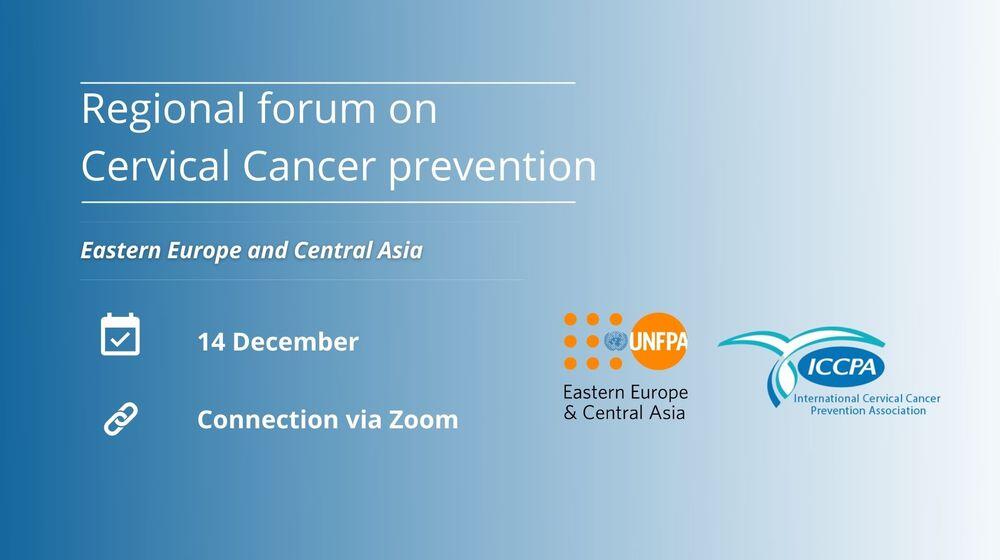Istanbul - The first meeting of a new regional forum on cervical cancer prevention in Eastern Europe and Central Asia was held online on 14 December.
“This forum is an important opportunity for knowledge-sharing and linking thematic priorities with concrete actions,” said Giulia Vallese, Regional Director a.i. for Eastern Europe and Central Asia (EECA).
Organized by UNFPA and the International Cervical Cancer Prevention Association (ICCPA), the forum brought together the members of the EECA Alliance for Cervical Cancer Prevention, regional government representatives, experts from national institutions and screening programmes, World Health Organization, International Federation of Cervical Pathology and Colposcopy, International Association for Research on Cancer, Roche Diagnostics and other private sector representatives.
The forum enables UNFPA to match the needs of individual countries with opportunities and support from international institutions and the private sector.
“This forum will be an excellent mechanism to share the solutions that have been found and that are likely to be more appropriate for other countries and territories in this region than solutions coming from high-income countries and thereby facilitate further progress in preventing new cases and deaths from cervical cancer,” said Dr. Philip Davies, Director General of the ICCPA.
UNFPA launched the EECA Regional Alliance on Cervical Cancer Prevention in October 2021. The Alliance will accelerate the elimination of cervical cancer across the region by harmonizing strategic approaches for cervical cancer prevention and control and helping countries develop and implement evidence-based action plans.
“The Alliance is a powerful multisectoral intercountry cooperation network for cervical cancer elimination in the region,” said Dr. Tamar Khomasuridze, UNFPA’s regional sexual and reproductive health advisor. “It promotes public-private partnerships and south-south cooperation to prevent new cases and deaths caused by cervical cancer.”
Most cervical cancer deaths are preventable and screening programmes can reduce cervical cancer rates by up to 80 per cent and by up to 90 per cent when combined with human papillomavirus vaccination of adolescent girls. However, due to an absence of such programmes in most countries in Eastern Europe and Central Asia, there are up to 10 times more new cases of cervical cancer and deaths in the region compared with Western Europe.
In 2020, the World Health Organization launched a global strategy to accelerate the elimination of cervical cancer. It calls for governments, civil society, the private sector, international organizations and affected populations to collaborate and increase human papillomavirus testing to help identify those most at risk of cervical cancer.
“The vision set forth in the global strategy is a cervical cancer free future,” said Giulia Vallese. “We need to work together and accelerate our efforts to make this vision a reality.”
There are more than 46,000 new cases and 21,000 deaths from cervical cancer in the region every year. The World Health Organization estimates that 311,000 women globally die each year from cervical cancer.



